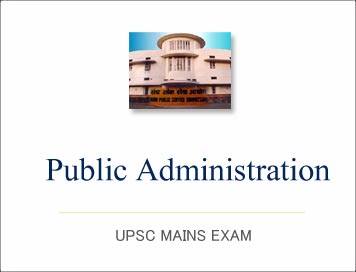Public Administration Mains 2017 : Solved Paper Question Paper-1 (Question-6)

Public Administration Mains 2017 : Solved Paper Question Paper-1 (Question-6)
(Section B)
Q6(a) “Liberalization, Privatization and Globalization have transformed the nature of development administration .” Discuss (20 marks) (Development Dynamics)
ANSWER: The role of development administration under LPG
requires dismantling of a regime of regulations, controls, restrictions,
licences, secrecy and delay. The development bureaucracy has to play an investor
friendly, responsive, transparent, open and competitive role. So, this requires
necessary administrative reform, which should aim at elimination of redundant
practices, procedures, administrative laws and corruption. Thus, the policy of
LPG affects the role, values and skills of development bureaucracy. It also
decreases the scope of the functions of the state, resulting in minimum of state
interference in the lives of the individuals. The state is called upon to
oversee the operational side of the enterprises. This gives the state a new role
as regulator.
Today, the role of development administration is towards more of governance,
then of direct involvement. The development administration has to play enabling,
collaborative, cooperative, partnership and regulatory roles.
Governance implies that development administration has to operate in a wider
context and coordinate all efforts and activities of the governmental agencies
at various levels with that of the market/the private sector, civil society
groups, NGOs and contextual participant or elected local government bodies,
self-help groups, etc. Although it appears that its directly handled operations
have declined in some of the non-traditional areas, development administration
has to provide synergy and direction for many collaborative, cooperative and
regulatory activities with other segments of the society.
b)” Lateral entry of competent experts into the government will promote freshness and innovation, but it can create problems of accountability.” (15 marks) (Personnel Administration)
ANSWER: Lateral entrants may not only bring specialised
expertise, good practices and work culture, but they could also induce
competition within the system. When civil servants are made to compete with
outside talent, the lethargic attitude will diminish. So the prospects of
lateral entry will always propel overall efficiency. The Sixth Pay Commission
and Second Administrative Reforms Commission (ARC) were unanimous on lateral
entry.
Transparency and accountability are two important factors that should not be
underplayed in hiring lateral entrants. Discretion on lateral entry may pave the
way to charges of being “politically motivated”, which may degrade the system.
For this, the ARC recommended the establishment of a central civil services
authority to deal with issues concerning lateral entries. But the body, which
would have ensured a robust and accountable system of lateral entry, is yet to
come into existence.
Civil servants should also be encouraged to move out and work for different
sectors on a short-term basis to enrich their knowledge and enhance their
motivation and efficiency. Therefore, lateral exit is as important as lateral
entry. This has the potential to raise the civil services from its slump.
